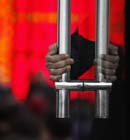Asia-Pacific
Nuke deal may tangle South Asian security
By Cheng Guangjin (China Daily)
Updated: 2010-03-23 08:54
 |
Large Medium Small |
BEIJING - Indications by the US that it was open to Islamabad's plea for a civilian nuclear deal akin to the US-India agreement would further complicate the security situation in South Asia, experts told China Daily on Monday.
The Times of India newspaper reported on Monday a possible policy shift by the US, which has until now rejected Pakistan's entreaties for a nuclear deal.
| ||||
She said the two sides were going to have "working level talks" on the subject during a strategic dialogue on March 24.
"I think we are beginning to pass those and this is a scenario that we are going to explore," she is reported to have said.
Pakistan and the US are set to hold their first high-level strategic dialogue this week in Washington, co-chaired by US Secretary of State Hillary Clinton and Pakistan's foreign minister, Shah Mehmood Qureshi.
The dialogue, however, is unlikely to result in any substantive progress on the nuclear deal between the two sides, and the deal would only undermine the relations between the US and India, pushing India to seek more cooperation from Russia, said Hu Shisheng, a scholar of South Asia studies at the China Institutes of Contemporary International Relations.
India's landmark civilian nuclear deal with the US in 2005, which ended the isolation it had experienced since testing an atomic device in 1974, created a major exception to the US prohibition of nuclear assistance to any country that did not accept international monitoring of all its nuclear facilities.
Hu said there were still two key hurdles in the nuclear cooperation between the US and India - the US has refused to transfer nuclear technology to India and has not given India the right to reprocess nuclear waste.
"If the US makes another exception for Pakistan, India will be irritated, and that will likely derail the US-India relationship," Hu said. "India then is likely to turn to Russia for more (assistance), which the US doesn't want to see (happen)."
Russia announced it would build 16 nuclear reactors in India as part of defense and energy deals when Russian Prime Minister Vladimir Putin visited India this month, competing with French and US firms for contracts to build nuclear power plants in Asia's third-largest economy.
"For the US, the only consideration when it offered the possibility of a civil nuclear pact with Pakistan may have been as a bargain for more support (from Pakistan) for its anti-terror effort," Hu said.
Washington calls Pakistan's semi-autonomous tribal belt the global headquarters of Al-Qaida and the most dangerous region on Earth, where Islamist militants are fuelling the war in Afghanistan, now into its ninth year.
"But the US won't easily trust Pakistan's internal security apparatus," Hu said, referring to recent bombings. "Who knows, the nuclear reactors may be threatened?"
If a civil nuclear pact is reached between Pakistan and the US, China would face a little less pressure in responding to Pakistan's requests for nuclear cooperation, he said.
"As far as the likely US-Pakistan nuclear pact is concerned, it could be an option for China to play the role of Russia, which has benefited from the US-India nuclear pact, " Hu said.
Russia is already building two reactors in the southern Indian state of Tamil Nadu, and has said that six of the reactors would be built by 2017.
Yet, there will be more problems as far as the security situation in South Asia is concerned, he said.
China-Pakistan ties have been a big concern for India. "Where will China-India relations go if China cooperates with Pakistan in civil nuclear deals?" Hu pointed out.
"The situation is already complicated in South Asia. The US-Pakistan (likely) pact will only introduce more complexities," Hu said.
Arif Rafiq, the president of Vizier Consulting, which provides strategic guidance on Middle East and South Asian political and security issues, told Radio Australia that Pakistan is expecting a lot when it comes to the civil nuclear deal and won't achieve much breakthrough (on the matter) in discussions with the US.
"It is going to be really difficult for the Pakistanis to attain some sort of progress in that in a span of two days. You need congressional approval, (and) you have to go through the IAEA's central board for approval," Rafiq is reported to have said.









